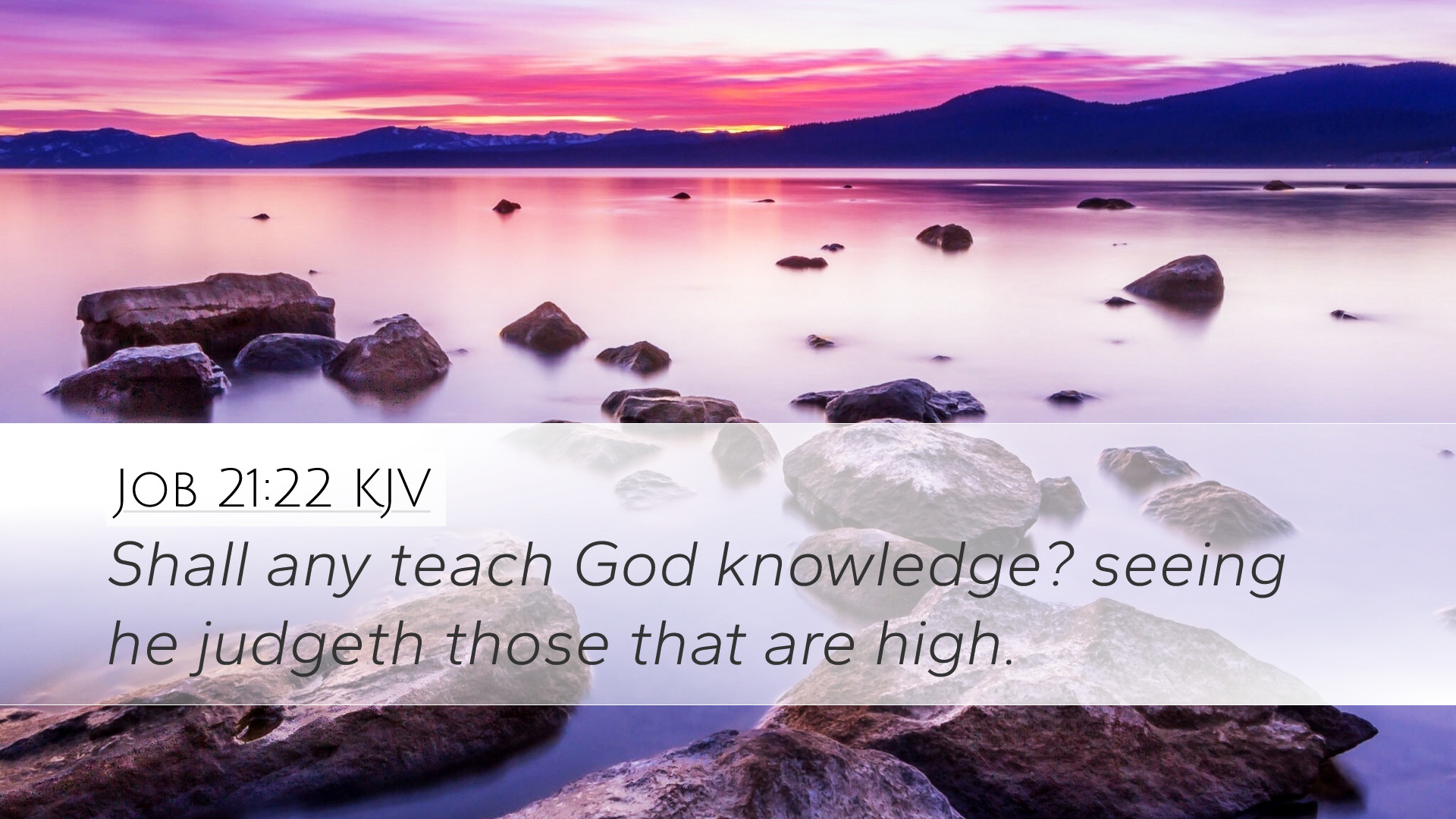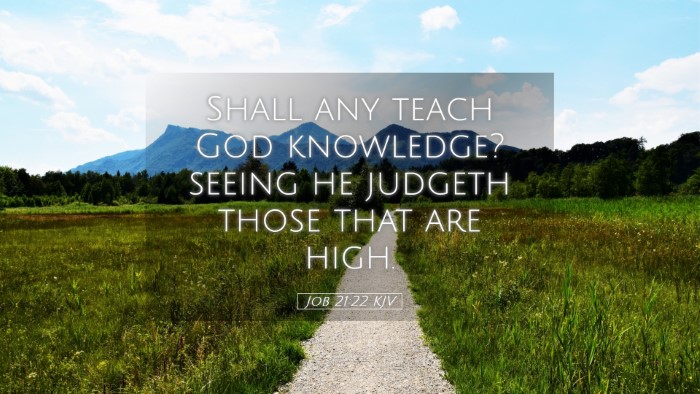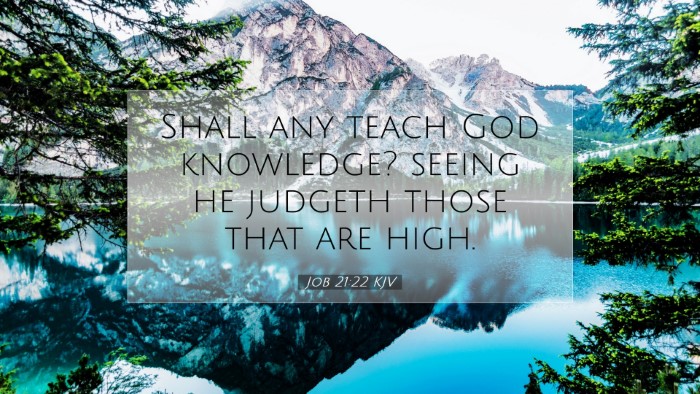Bible Commentary on Job 21:22
Verse Summary: Job 21:22 states: "Shall any teach God knowledge? seeing he judgeth those that are high." This verse arises from Job's discourse on the inequalities of life, particularly regarding the fate of the wicked and seems to challenge the preconceived notions of divine retribution.
Contextual Background
Job's lamentable condition and his discourse with his friends provide the backdrop to this crucial verse. Job's friends contend that suffering is a direct result of sin, yet Job counters their arguments by highlighting examples of the seemingly prosperous wicked. His assertions lead to the theological implications that God's justice cannot be confined to human understanding.
Commentary Insights
-
Matthew Henry's Interpretation
Henry emphasizes the theological implications of Job's statement, noting that no creature can impart knowledge to the Creator. He underlines the futility of human attempts to advise God regarding His judgments or the governance of the world.
This highlights God’s sovereignty and omniscience, which surpass human understanding. Henry posits that God judges not only the high but also the low, thus, no one is outside of His discerning sight and judgment.
-
Albert Barnes' Commentary
Barnes focuses on the rhetorical nature of Job's question, pointing out that it serves to refute the arguments of his friends. The assertion that God can be taught or influenced contradicts the foundational belief in His omnipotence.
He argues that the immediate context stresses that God, in His sovereign judgment, possesses wisdom that invariably governs both the exalted and the lowly, suggesting that earthly riches and honor do not equate with divine favor.
-
Adam Clarke's Analysis
Clarke’s approach delves deeper into the philosophical quandary of divine justice. He interprets the verse as a powerful retort against simplistic views of retribution. Clarke expounds that Job considers the common observations of life, where the wicked often prosper while the righteous suffer.
This observation leads to the profound conclusion that God’s wisdom supersedes human capabilities in understanding justice; therefore, it is inappropriate to presume that humanity can fully comprehend divine decisions.
Theological Implications
The verse brings to light significant theological issues regarding the nature of God, suffering, and justice. The assertion that no one can teach God reflects the sovereign nature of God’s wisdom. In light of this, several implications emerge for pastors and theologians:
-
Divine Sovereignty:
This verse reaffirms the belief that God is supreme and His decisions are beyond reproach. Understanding His sovereignty offers comfort to believers facing distress, emphasizing faith over understanding.
-
Human Limitations:
Job's lament illustrates human beings' limited grasp of divine matters, chastening any inclination to judge God’s actions based on human perception or experience.
-
The Nature of Justice:
Contemplating divine justice necessitates recognizing the complexity of moral situations in life. Job's challenge invites deeper theological exploration into how God's justice operates outside human expectations.
Practical Applications
For both pastoral ministry and personal faith, understanding Job 21:22 has profound implications. Key applications might include:
-
Encouragement in Suffering:
Job’s experience teaches believers that suffering does not equate to divine disfavor. Pastors should reassure their congregations that even amidst adversity, God remains just and aware.
-
Humility Before God:
This verse serves as a reminder to adopt an attitude of reverence and humility towards God’s wisdom rather than presuming to comprehend His ways fully.
-
Trust in Divine Justice:
Believers can maintain faith in God’s ultimate justice, trusting that in due time, all wrongs will be righted, and everything will be reconciled according to His perfect will.
Conclusion
Job 21:22 poses a compelling challenge to human understanding of God’s justice and knowledge. By examining the insights from the commentaries, we can affirm that divine wisdom far exceeds human capability. As such, it is incumbent upon believers to trust in that divine wisdom and remain steadfast in faith, even in the face of life's inexplicable dilemmas.


